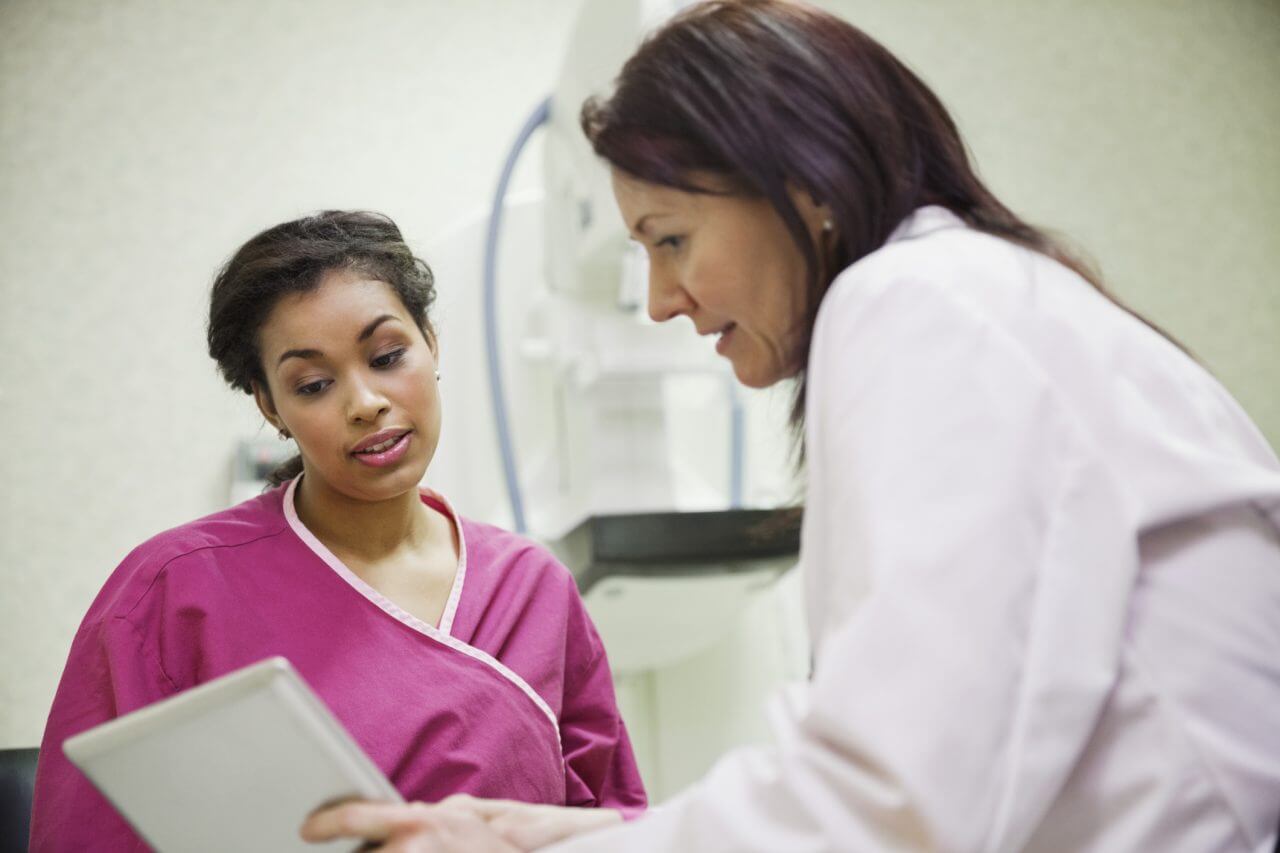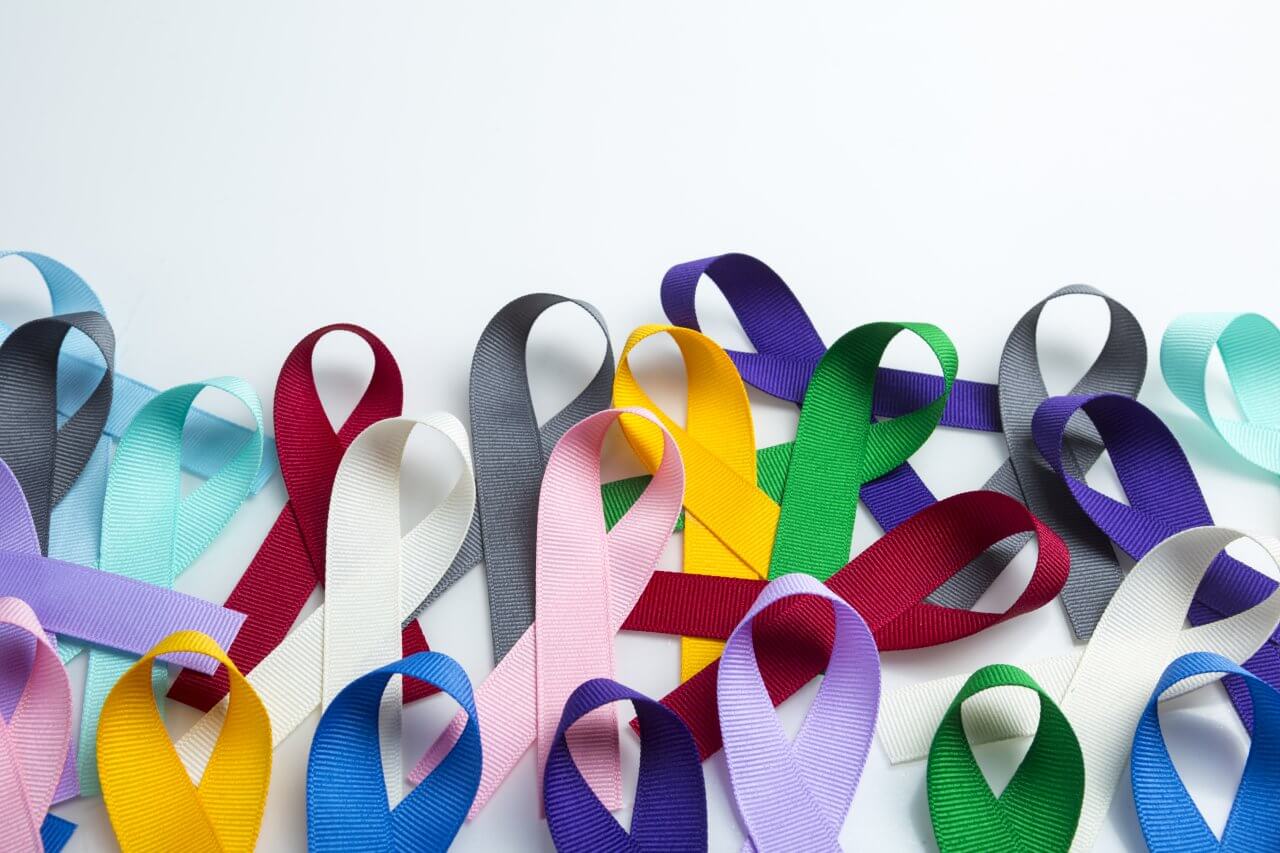Cancer, Family History & Genetics

People with family members who’ve had cancer will often ask, “Is cancer a genetic disease?”. The answer is that there’s a link between cancer and genetics. Specifically, a family history of certain types of cancer may mean you have a higher than normal risk of developing the disease.
Cancer Risk of Family History
When it comes to family history and cancer risk, the fact that one or more family members have had a particular type of cancer doesn’t mean that you’ll develop it. However, it can mean that your chance of getting the disease is elevated.
For example, if you have two or more relatives on either side of your family tree who’ve had colorectal, breast, uterine, or ovarian cancer, you should talk with your doctor to better understand your risk. Similarly, if a close relative (a parent, sibling or child) has had colorectal, uterine or breast cancer before the age of 50, your risk of those diseases may be higher. Understanding the connection between cancer and your family history is important.
What Types of Cancer Are Genetic?
Anyone with a history of cancer in their family wants to know, “What cancers are genetic?”. Conditions called gene faults, which can be inherited can increase your risk for certain types of cancer. This can include:
● Pancreatic cancer. Researchers believe that approximately 10% of pancreatic cancer is caused by a gene fault. However, it’s not yet clear whether a single gene is involved, and if so, which one.
● Breast cancer. Breast cancer is common. Approximately 12% of women will develop it in their lifetime. Experts believe 5-10% of those cases are caused by an inherited gene.
● Prostate cancer. The most common cancer in men, prostate cancer affects approximately 12% of the male population. Genes known as BRCA1 and BRCA2 appear to be involved in the development of this cancer.
● Melanoma. Approximately 10% of people who develop this type of skin cancer have a strong family history of the disease.
● Colorectal cancer. Excluding skin cancer, colorectal cancer is the third most commonly diagnosed cancer in the U.S. Certain inherited genes can increase the risk of this disease.
Other cancers may be influenced by genetic factors as well. Your doctor can talk with you about them and your risk based on your family history.
Genetic Testing, Screening, and Treatment for Cancer
Researchers are making tremendous progress in genetic testing for cancer, genetic cancer screening, and genetic cancer treatment.
Genetic Testing for Cancer
Tests for certain common faulty genes are now available. This includes genes associated with a higher risk of prostate cancer, breast cancer, ovarian cancer, colorectal cancer, and uterine cancer. Tests are also available for a number of rare gene faults associated with thyroid cancer, melanoma, kidney cancer, pancreatic cancer, and retinoblastoma, a type of eye cancer, and additional tests are being developed.
Genetic Cancer Screening
What should you do if you learn you have a higher risk of cancer due to genetics? It’s important to talk to your doctor. Your higher risk may mean that you should have cancer screening earlier or more often than if you didn’t have the increased risk.
Genetic Cancer Treatment
Our increasing understanding of the role of genes in cancer is improving the way the disease is treated. In addition to surgery, radiation, and chemotherapy, doctors are now using treatments based on the genetics of a particular disease. These treatments can address cancer effectively and, in many cases, with fewer side effects than other treatments.
Learn More About Cancer and Family History from Baptist Health
Take a Health Risk Assessment (HRA) questionnaire to estimate your personal health risk and identify your risk factors based on your family history.



